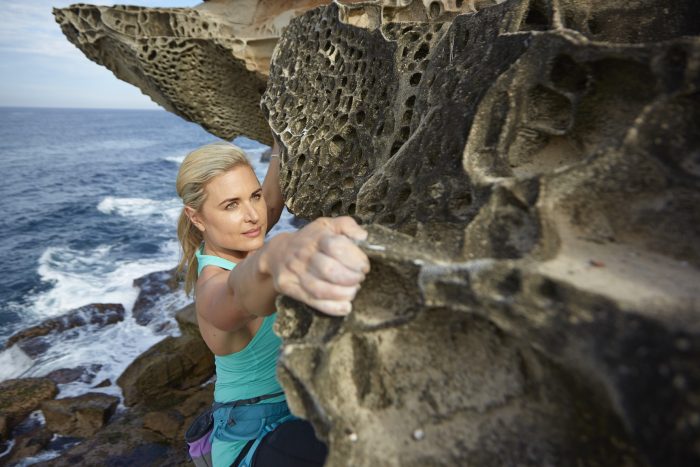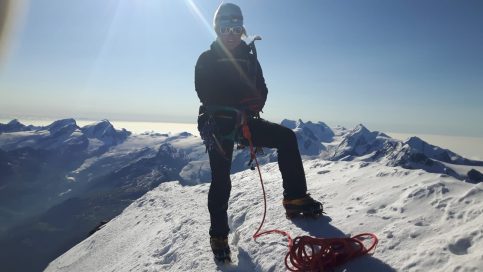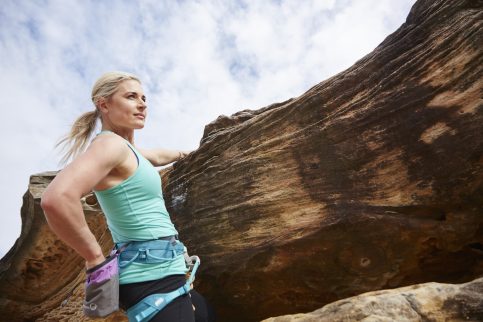
07 Nov Your Mind: Best Friend or Worst Enemy?
Performance Psychology
Performance psychology, in a nutshell, means finding your weak spots and tackling them until those weaknesses becomes your strengths; and until your mind becomes the point of difference between you and all the other athletes. It’s the application of sneaky and simple techniques that capitalise on your thoughts and emotions, that will help to boost your training and experience – not just in the gym, but in adventures, the outdoors, and your home and work life as well.
The purpose of performance psychology is threefold: to identify what your current typical thoughts and cognitive patterns are; to understand how these thoughts have triggered emotional responses and the ways that these emotional responses have affected you before, during and after your performance; and to learn the skills to redirect these thoughts and emotions to the best ways that will help you to achieve your goals.
You might have heard of things such as visualisation/mental rehearsal, breathing, mindfulness, cognitive diffusion, cognitive traps, goal-setting, emotion regulation… These are some of the tools that are used to help you get to where you want to be. Similarly to all fields, performance psychology is constantly evolving, and is even beginning to incorporate technological tools such as the Halo (see www.haloneuro.com) which is designed to prime the muscle fibres prior to training, in order that they train to an accelerated level during the session. For more information about the Halo, have a read of the VERY EXCITING collaborative study between JBC, ACU and Elysium High Performance.
PERFORMANCE PSYCHOLOGY IN ENDURANCE SPORTS, ADVENTURES AND THE OUTDOORS
That’s all very well and good for in the gym or in competitions like CrossFit….. But how is it relevant to adventures and the things we all train for at JBC, I hear you say….
Imagine you are on day 14 of the Everest Basecamp Trek. You’re tired. Your body – although fitter than you were at the beginning – is starting to cumulatively tire and be affected by altitude. You’re losing your appetite and with it, your motivation for another 6 hour day of walking, is dwindling. As your motivation dwindles, your mood drops, and as your mood drops, your head goes down. Once this happens, all you see – quite literally – are your feet.
Your thoughts are basically telling you that you are an idiot for choosing this trek, whhhhhyyyyyyyyyy couldn’t you have done something a bit less challenging, you’ll never make it to EBC, and you want to just quit now. Sound familiar? What about trail-running? You’re 11kms into a 21km (or 55km) event. It’s your first event, and so, because you are nervous, you set off super quick from the start. As a result, you’re now in a world of hurt, your steps have shortened dramatically, you are tripping over rocks and tree roots, and with every stumble, you hear the voice in your head that says “I told you so. This was always going to be too hard for you”. How does that make you feel? Rubbish, right?! And when you feel rubbish, your confidence falls, your head droops, your performance drops. And most of all?! And this is the biggest factor….: YOU STOP ENJOYING WHAT YOU ARE DOING.
Adventure and endurance in the outdoors are such incredible experiences and can be intrinsically powerful, as well as beautiful when you can catch your breath and look up at the surroundings. We all know that the experiences aren’t always Type I fun – in fact, most of the time they are Type II fun and almost masochistic… but there is a level of enjoyment and satisfaction in being in the outdoors, in learning something new about yourself, and simply in soaking in the goodness of the environment and energy around you.
If you can harness your thoughts through a few pretty simple techniques, you will very easily change your mindset – and once you change your mindset, despite the physical pain, your head will remain high, you will actually see the stunning views around you, and you will experience all the goodness that the outdoors can offer. Yes, there will still be physical pain. But the pain won’t stop you enjoying the experience. The devil in your head? He’ll be banished.
It’s not just for endurance events and experiences, by the way. The skills you learn will help keep you focused on your individual goal – whether it be climbing harder and bolder, dealing with the uncertainty of an expedition, canyoning through rough terrain – or simply, dealing with shitty weather conditions that might impact race conditions.
And if you’re not sure whether this is crazy hippie woo-woo or legitimate science, have a look at these two clips with Alex Honnold who, as you know, is pretty much the world’s most superstar climber. He attributes his success on El Cap to mental rehearsal, visualisation and cognitive discipline.
Oh and BTW…. That fatigue? It doesn’t actually mean you need to stop. You only stopped in the middle of the reps because your brain decided your discomfort meant that you were fatigued and needed to stop – and so you stopped. In actual fact, there is a significant difference between your perception of fatigue; and the real exertion limits of your body. If you train your body to listen to your body, it will perform to your limit of exertion. On the other hand, if you are more accustomed to listening to your thoughts…. You’ll stop when you get uncomfortable. Which one would you prefer?
**NB:
Type I Fun – fun now, fun later
Type II Fun – not fun now, fun later
Type III Fun – not fun now, not fun later
Dr Kate Baecher, Clinical Psychologist, MAPS
DPSYCH (Clin), MPHIL (Psy), BPSYCH (Hons)
A bit about Kate:
Kate is an accomplished performance psychologist with over 15 years’ practical and theoretical experience. As a psychologist, coach and trainer, she has worked with elite sporting teams, corporate leaders, members of Australia’s Special Forces and television personnel. Kate is accustomed to helping individuals and teams optimise their performance in high-risk and high-stress environments, including operational work in Afghanistan and East Timor throughout her Army career, and refugee camps in Bangladesh with her disaster response work. Kate has coached many professional sports teams and organisations to develop cohesion and strengthen mental acuity, including the Manly Sea Eagles, Parramatta Eels, the Australian Defence Force, NSW Police, Qantas, Telstra, the ABC and the Australian Federal Police. She has also worked on a number of television shows as a psychological coach and profiler, including Shark Tank, the NRL Rookie, and I’m A Celebrity Get Me Out Of Here.
Kate is a registered clinical psychologist and has completed her Doctorate of Clinical Psychology at Macquarie University as well as a Master of Philosophy and Bachelor of Psychology (Hons). When she is not working, her passions lie in the outdoors, regularly climbing rocks and mountains throughout Australia, the Nepal Himalaya, Europe and Asia. She is a keen member of JBC and loves the community vibe and the overall energy that the crew shows.
Who are Elysium High Performance?
Elysium High Performance is a performance psychology and coaching organisation that develops and implements personalised training programmes for individuals and teams operating in high-risk, high-stress or complex environments…. The outdoors/adventure being an example of such an environment.
ElysiumHP are headed by a pair of siblings: Chris and Kate Baecher. Chris, with 15 years experience as an Air Traffic Controller, coach, trainer and director of high-stress simulated experiences, is the Co-Director and Business Manager of EHP. Kate, described above, is the Co-Director and creative force behind the team. EHP also collaborates with a research team from USYD and ACU, and employs a group of consultants.
ElysiumHP’s programmes are designed to assist people to maximise their outcomes regardless of any external influences and perform at a consistent high level, regardless of external influences.





No Comments